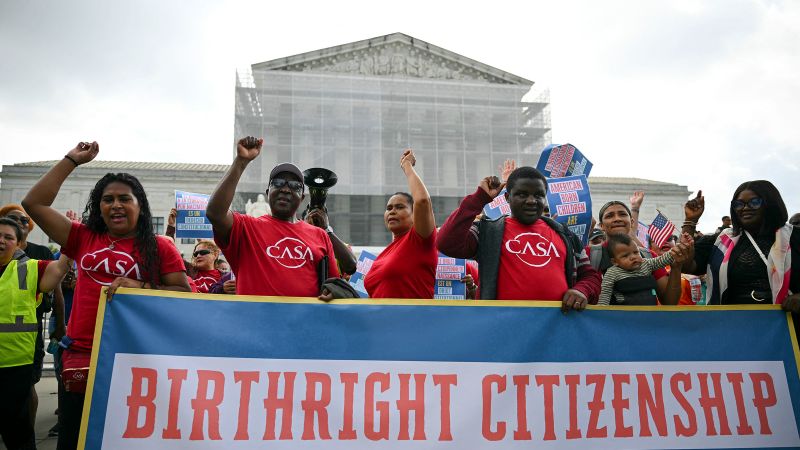On a recent Wednesday, the Justice Department took a significant step by urging a federal appeals court to overturn a ruling that blocked President Donald Trump’s attempt to end birthright citizenship. This initiative from the Justice Department is part of a broader effort by the Trump administration to challenge a longstanding interpretation of the 14th Amendment, which grants citizenship to anyone born on U.S. soil. The case reached the 9th U.S. Circuit Court of Appeals, where it marked the first instance in which an intermediate court heard oral arguments regarding the constitutionality of this contentious policy.
The oral arguments unfolded in a Seattle courthouse, amidst ongoing discussions in the Supreme Court about potentially modifying lower-court injunctions. Such modifications would allow Trump to partially enforce the birthright citizenship policy while various legal challenges are still being adjudicated. This legal maneuvering highlights the complexity and high stakes involved in immigration law and the interpretation of constitutional amendments.
During the hearing, DOJ attorney Eric Dean McArthur articulated the department’s stance, emphasizing that the 14th Amendment’s Citizenship Clause establishes a foundational definition for birthright citizenship, but does not limit Congress’s authority to expand it. His assertions were grounded in historical context and legal precedent. He clarified that Congress retains the power to extend citizenship to children of foreigners in various immigration categories, including those who are in the country illegally or temporarily.
However, the arguments brought forth during the hearing exposed some complications. Questions arose about the application of Trump’s executive order, especially concerning distinct groups of immigrants such as asylum seekers. McArthur admitted that the government had struggled to formulate specific guidance for implementing the executive order due to various court orders that had previously blocked it. He pointed out that the injunction impeded the government from even discussing how the policy would be executed, leading to significant uncertainty about its application to different immigrant categories.
Despite these challenges, McArthur advised the appeals court to refrain from making a definitive ruling until the Supreme Court resolved its own pending matters concerning the injunctions. This caution suggested a strategic approach, acknowledging the overarching legal cloud created by the Supreme Court’s forthcoming decision.
Judge Patrick J. Bumatay, part of the panel hearing the case and appointed by Trump himself, showed a degree of alignment with the administration’s arguments. He queried whether a pivotal 19th-century Supreme Court decision might limit the interpretation of the 14th Amendment’s reach. Bumatay also pressed the state representatives challenging the policy on the necessity of a nationwide injunction, further reflecting the administration’s stance on judicial overreach.
Washington state Solicitor General Noah Purcell countered the administration’s assertions, arguing that the implications of allowing a fragmented application of the citizenship policy would be deleterious for the states. He highlighted practical concerns regarding newborns in states that are not involved in the litigation, pointing out that these children might not receive essential services such as Social Security numbers, complicating their access to public benefits upon their families relocating.
Earlier this year, a different panel from the 9th Circuit chose not to stay U.S. District Judge John Coughenour’s ruling, which blocked Trump’s policy. Additionally, federal appeals courts located in Boston and Richmond declined to overturn similar executive actions, indicating a trend among courts resisting the administration’s birthright citizenship agenda.
Trump’s directive, dubbed “Protecting the Meaning and Value of American Citizenship,” aims to institute limitations on federal recognition of citizenship for children born on U.S. soil to parents who are here unlawfully or are in the country legally for limited periods. As legal battles continue to unfold, both the Justice Department and Trump administration are motivated to redefine the landscape of citizenship and immigration rights amid a polarized national dialogue.



